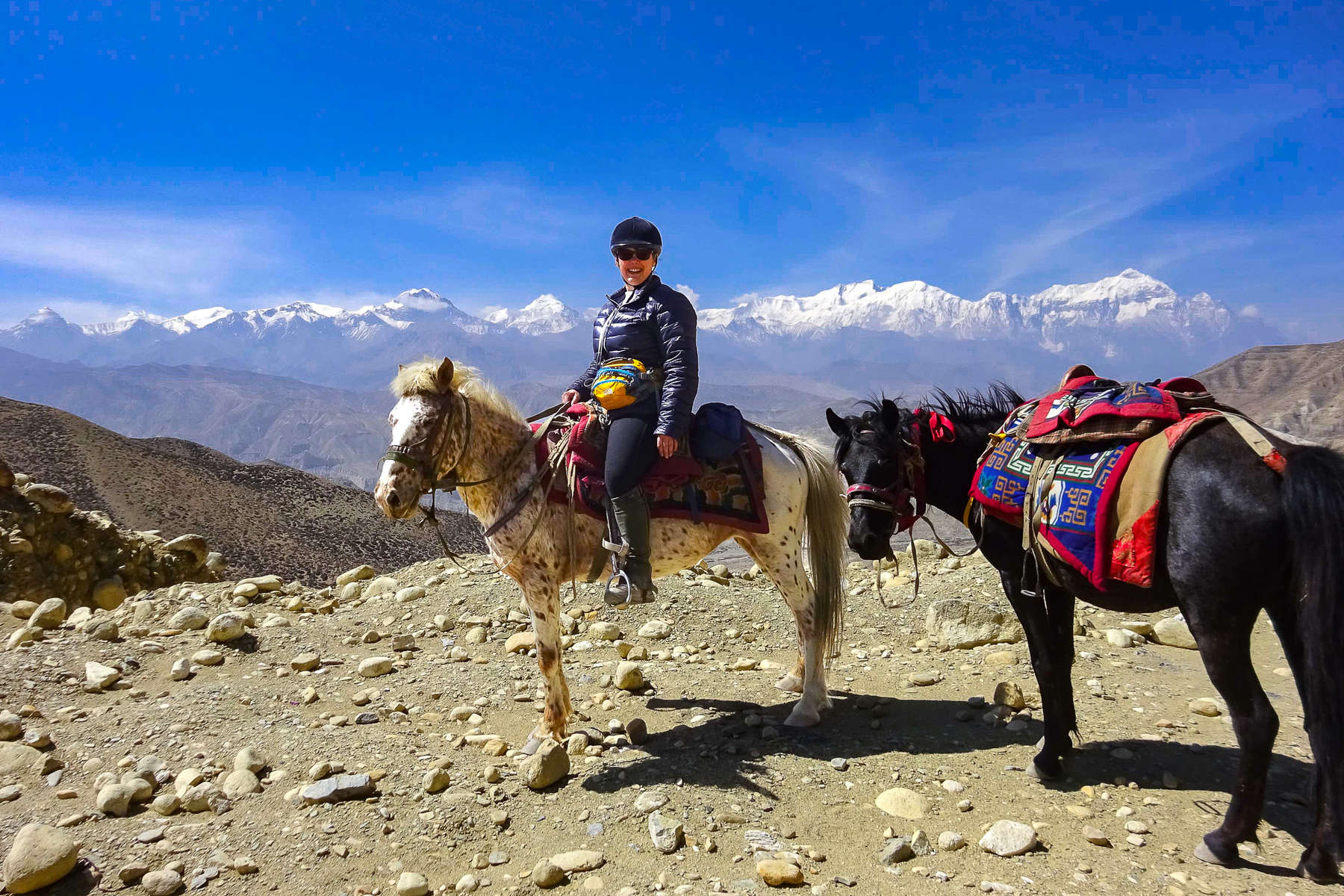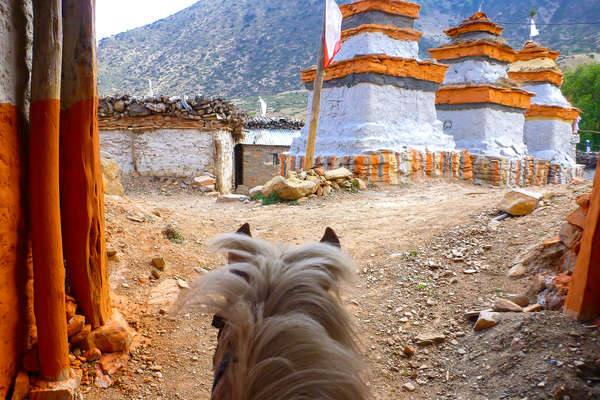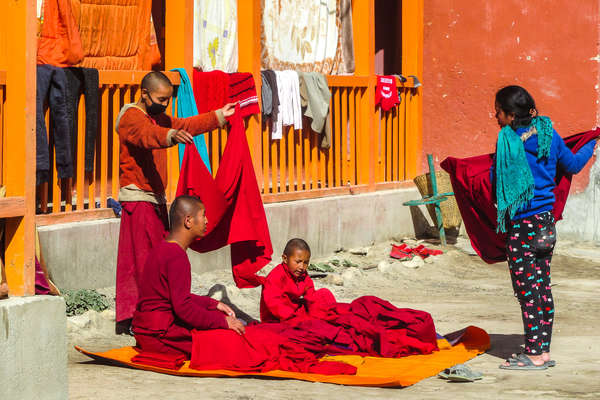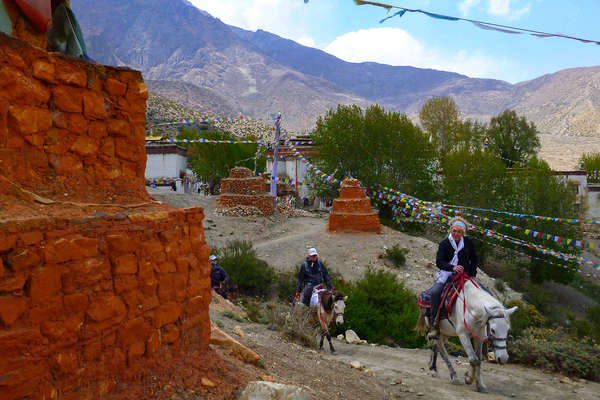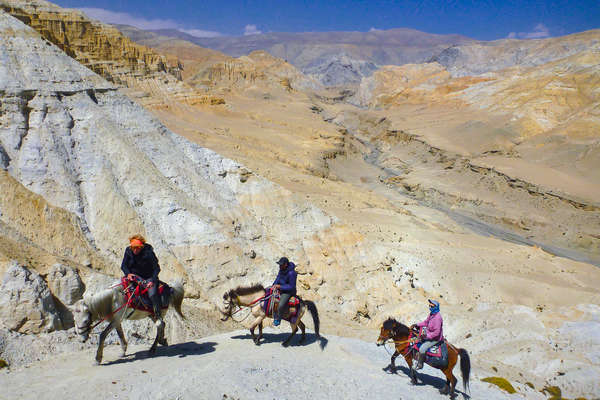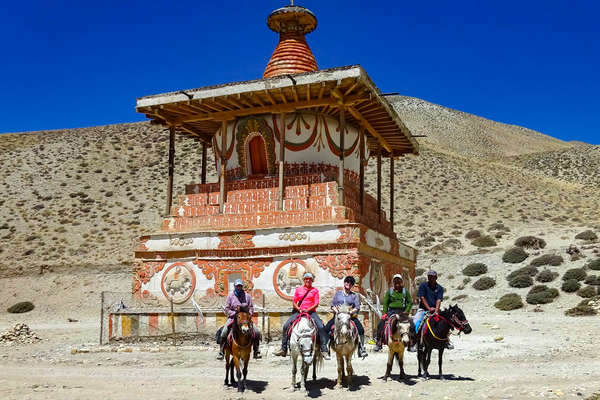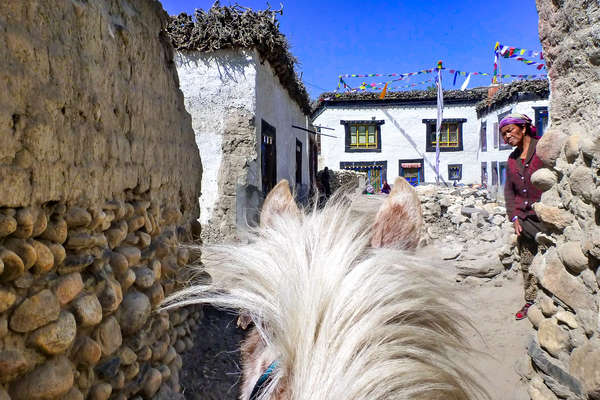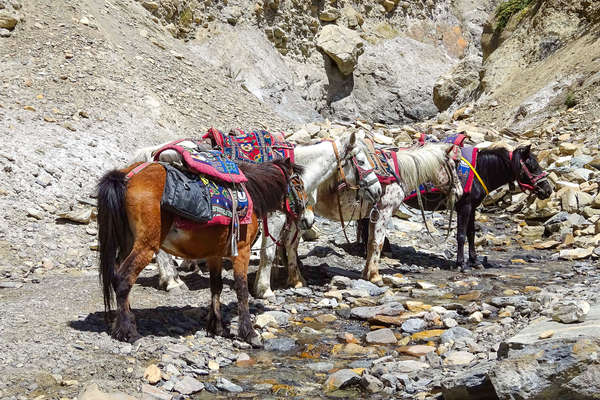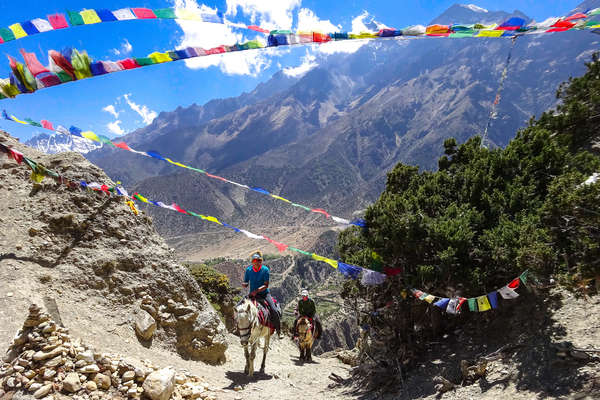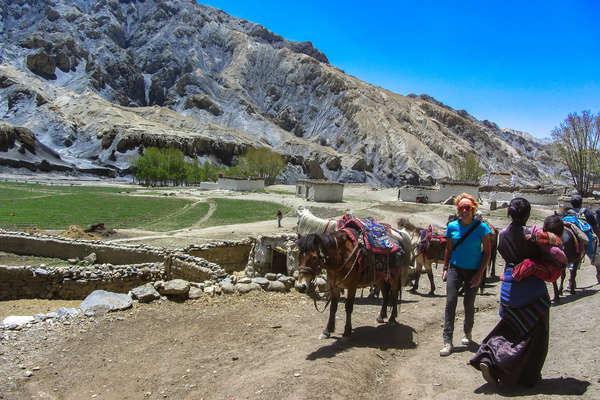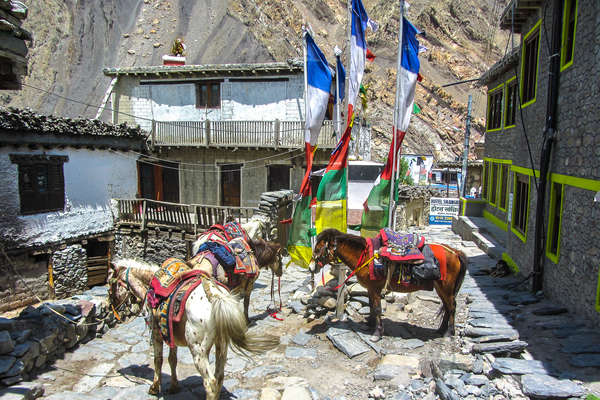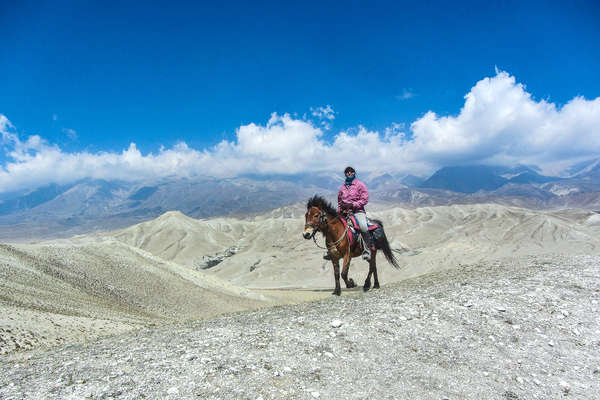Comfort
Standard hotel (double rooms) with en-suite bathroom in Kathmandu and Pokhara.
During the ride, you stay in simple guesthouses (tea houses) in the villages. Some guesthouses will charge extra to use shower facilities (150-500 rupees). You will need to bring your sleeping bag (see packing list below)
Meals
The food is simple, with picnic lunches and hot meals in the evenings.
Beverages are not included and mineral water can be purchased in the villages.
Water:
Take care not to drink water from unknown sources. You can refill your bottles using boiled water (or bring water purification tablets).
Climate
The best time to visit this area is in the months of February, March, April, and May or November, to avoid the monsoon months. Please remember that the weather is always changeable at high altitude, and the winds can be strong.
Tips
Tips are customary in Nepal: it is common to tip your team (guide, driver, cook...) and the staff in hotels and restaurants. Some guides may offer to collect the money and look after the distribution. You should count about £40-45 per rider for the week, although this is of course left to your discretion.
Please remember that the lifestyle in Nepal is very different to that of Europe. Please do not tip too generously, as this can disrupt the local economy. Do not give money to children either.
Packing list
As the luggage will be carried by horses and mules, please do not bring suitcases, bags with iron lining or wheels. Your luggage should be soft sided with a capacity of 60-80 litres. We recommend taking a backpack or duffle bag. During the ride, the maximum weight allowance is 15kg per rider. You can leave some of your belongings in Kathmandu or Pokhara to be picked up on your way back. Please pack in accordance with local religious and traditional cultures - it is important to keep your shoulders and knees covered when meeting the local people. Please do not wear shorts or strappy tops in towns and villages.
Head
- Equus Journeys strongly recommend that you wear a riding helmet and that you take your own to ensure a correct fit. There are many lightweight options available nowadays.
- Sunhat for when not riding.
- Warm hat for cold nights.
- Sunglasses - with a cord attached so they don't fly off when riding.
- Buff or bandana.
Upper body
- Thermals (long or short sleeved).
- Long-sleeved shirts that provide protection from the sun and are an extra layer.
- T-shirts.
- Tops to wear in the evening.
- Lightweight fleece or jumper.
- Warm fleece or jumper (and a spare in case one gets wet).
- A warm, windproof and waterproof jacket with a hood - it can rain and the evenings can be particularly cold.
- Feather / down jacket.
- Bodywarmer / gilet.
Legs
- Thermals.
- Lightweight, comfortable riding trousers or jodhpurs - we recommend riding in them at home before taking them on holiday to ensure they don't rub.
- Waterproofs to go over trousers.
- Casual trousers for the evenings, such as jeans or tracksuit bottoms.
- Lightweight, comfortable trousers for non-riding days / walking.
Hands and Feet
- Comfortable, short hiking/riding boots that have been worn in. We recommend short hiking boots (that offer good protection for your ankles, and have rigid or semi-rigid soles) and that you can wear with half chaps, as there will be periods of walking. (Paddock boots will not suitable as they don’t have enough grip). You may wish to take long chaps instead of half chaps, for an extra layer of protection against weather.
- Trainers or equivalent light shoes for the evenings.
- Several pairs of warm, thick socks.
- 2x pairs of gloves - your hands are particularly exposed to the sun, cold or rain whilst riding. Waterproof gloves can be particularly useful.
Nightwear
- Sleeping bag. The comfort factor should be -10°/15°C minimum.
- Sleeping bag liner - silk, cotton or fleece - adds an extra layer.
- Pyjamas or tracksuits or thermals for sleeping in.
Other
- Towels - lightweight camping ones will both dry and pack more easily. Also best to have your own towel for use in hotels.
- Camera and high capacity memory card. Spare battery.
- Bumbag for carrying your camera and small items whilst riding.
- Headtorch or small torch – you may want to bring spare batteries and bulbs.
- Water bottle of at least 1 litre.
- Wet Wipes or equivalent (for when washing facilities aren't available).
- Cosmetics – shampoo, deodorant, moisturizer, toothbrush etc.
- Toilet paper and a lighter to burn it with.
- Small plastic bags for rubbish.
- Ear plugs (for light sleepers).
- Travel adapter to charge your devices.
Medical kit
You may wish to ask your doctor for some specific medication for travelling at High Altitudes. We recommend that you discuss this directly with your doctor who is best placed to advise on your personal medical history.
- Sunscreen and lip balm - should be high factor.
- Insect repellent, preferably containing deet.
- Any medication you regularly take.
- Aspirin or Paracetamol - for pain or fever.
- General antibiotic + prescription
- Blister plasters in case of any rubs.
- Antihistamine.
- Throat lozenges, vapour rub.
- Antiseptic cream, plasters, insect-bite salve etc...
- Spare prescription glasses/contact lenses.
- Eye drops.
- Imodium or similar anti-diarrhea medication.
- Re-hydration sachets.
- Water purification tablets.
- Antiseptic wipes.
- Handwash gel.
- Scissors, tweezers and thermometer.
In your hold luggage
- Swiss army knife (or equivalent).
- Any liquids / cosmetics over 100ml. We recommend biodegradable washing products where possible.
In your hand luggage
- Any liquids less than 100ml, packed in a small, clear, plastic ziplock bag.
- Any valuables, such as your camera, ipod, ipad etc.
- Your riding hat.
Our recommendations
- Backpacks cannot be worn whilst riding. We recommend a small bumbag or a coat with pockets so that you can carry small items with you during the day (camera, sunscreen, lipbalm etc).
- We recommend travelling in your boots and carrying your hat and some riding clothes in your hand luggage - then if your luggage goes astray you are still able to ride!
- We recommend taking a copy of your passport and insurance documents with you in case you lose your originals.
- Please take your rubbish home with you. There are no recycling facilities in Tibet, so take your used batteries, aerosols etc back home and dispose of them appropriately. Try to leave excess packaging material at home before travelling.
- You may wish to take some photographs or postcards of your home with you to show your hosts. You may also wish to take some crayons, colouring books etc for the children. Be careful not to take card games as these are frowned upon by the adults, who use them for gambling.

